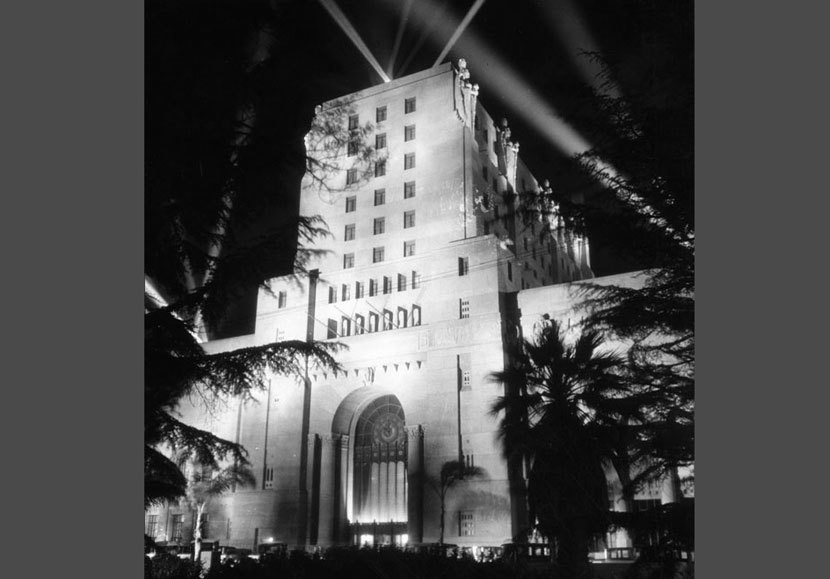Aldous Huxley (1894–1963)
From Writing Los Angeles: A Literary Anthology

Aldous Huxley was born 128 years ago, on July 26, 1894.
When he was thirty-one years old, Huxley and his wife went on a trip around the world. The most memorable and consequential portion of their journey was perhaps a three-day visit to Los Angeles, which inspired an essay with elements that were later amplified in Huxley’s greatest novel, Brave New World.
Even before he had arrived in Hollywood, Huxley was repulsed by the burgeoning entertainment industry. His 1925 novel Those Barren Leaves suggests that the sole purpose of film and radio and jazz is “the prevention of thought and the killing of time.” He came across an outdoor theater in Java showing an adventure film with a chase scene in which a hero catapults himself through impossible stunts to save a helpless woman from a villain, and he “was astonished, when the performance attained its culminating imbecility, that [the audience] did not all with one accord turn on us with hoots of derision, with mocking and murderous violence.” Instead, the reaction to “the white man’s world” revealed in the movie was “a languid snigger of derision. Nothing more. Just a little laugh.”
As David Leon Higdon notes in his book Wandering into Brave New World, when Huxley wrote his essay on Los Angeles, he focused on “the artificialities of film production, the commercialization of American evangelical religion, and the ubiquity of excess in everything from architecture to restaurant portions.” What biographers often find hard to explain, then, is how and why, a decade later, Huxley returned to the United States, found work at MGM studios writing screenplays for several major motion pictures, and ended up living in Los Angeles (and loving it) until he died in 1963.
We present his 1926 essay, “Los Angeles. A Rhapsody,” as our Story of the Week selection, and in the introduction we detail Huxley’s progress from Hollywood’s cynical outsider to its consummate insider.



